If You Smell This in Your Home, Call Pest Control, Experts Warn
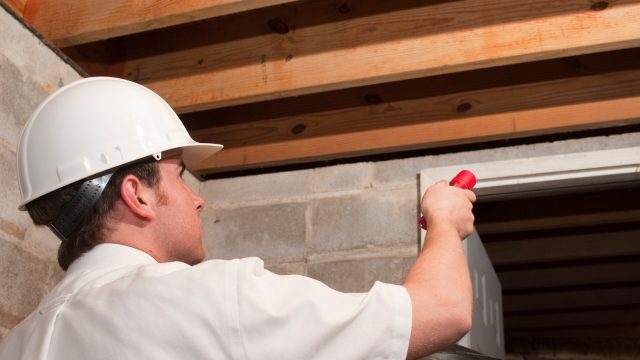
Noticing problem areas around the house usually involves seeing a crack in the foundation or hearing an appliance making a frightening noise. But besides your eyes and ears, it turns out your nose can be just as helpful at alerting you when something is wrong—especially when it comes to detecting certain types of unwanted critters. Read on to see which smell is a sign you should be calling pest control right away.
RELATED: You’re Inviting Mice to Your Home If You Have This in Your Yard.
If you smell rotting meat or a decaying corpse, you might have a possum hiding in your home.
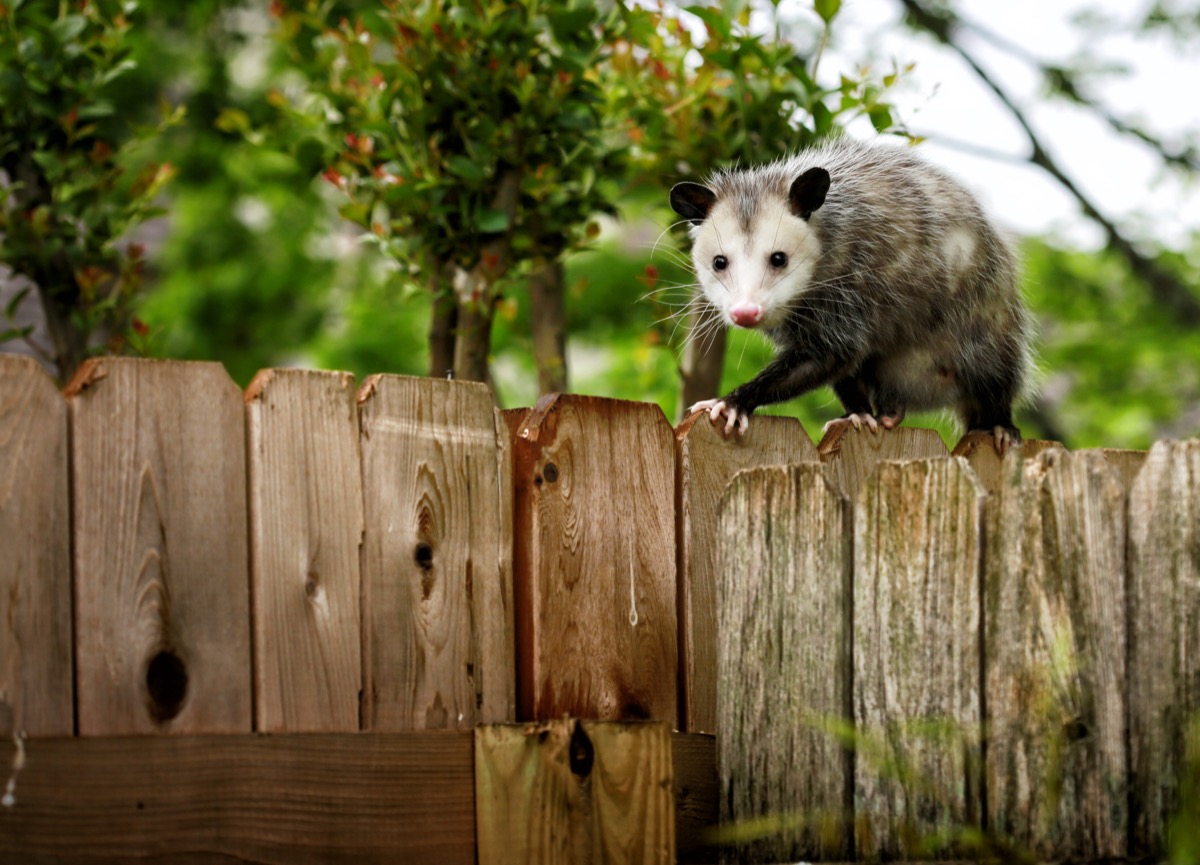
An off smell can have the power to stop you in your tracks—especially when it’s in your own home. But besides smelling unexpected smoke or a garbage can that needs emptying, noticing the scent of rotting meat or a decaying corpse in your home could mean that it’s time to call pest control to take care of a hiding possum.
As small scavengers with very few means of protecting themselves, possums are well known both for being the only marsupial to live north of Mexico and for their somewhat comical defensive maneuver of simply pretending to be dead when they’re frightened or feel threatened. But according to Robert John from J&J Exterminating Co. in Louisiana, this comatose state—which the animal can’t even control—also causes them to secrete a smelly substance that is unmistakably vile. “This putrid smell, along with their ‘dead’ state, is what really drives the predators away. They don’t just look dead. They smell like they’ve been dead long enough to have started rotting,” he writes for the company’s blog.
But it’s not just their defensive odor you may notice. “Opossums are known to use a latrine system, meaning they choose one area to use as their toilet, which can become very smelly, very fast,” says ProStaff Pest Control in Florida. The next time your nose picks up a bad scent, you may want to check for droppings or call a professional to take a look.
You might be able to hear possums scurrying about or communicating with their young.
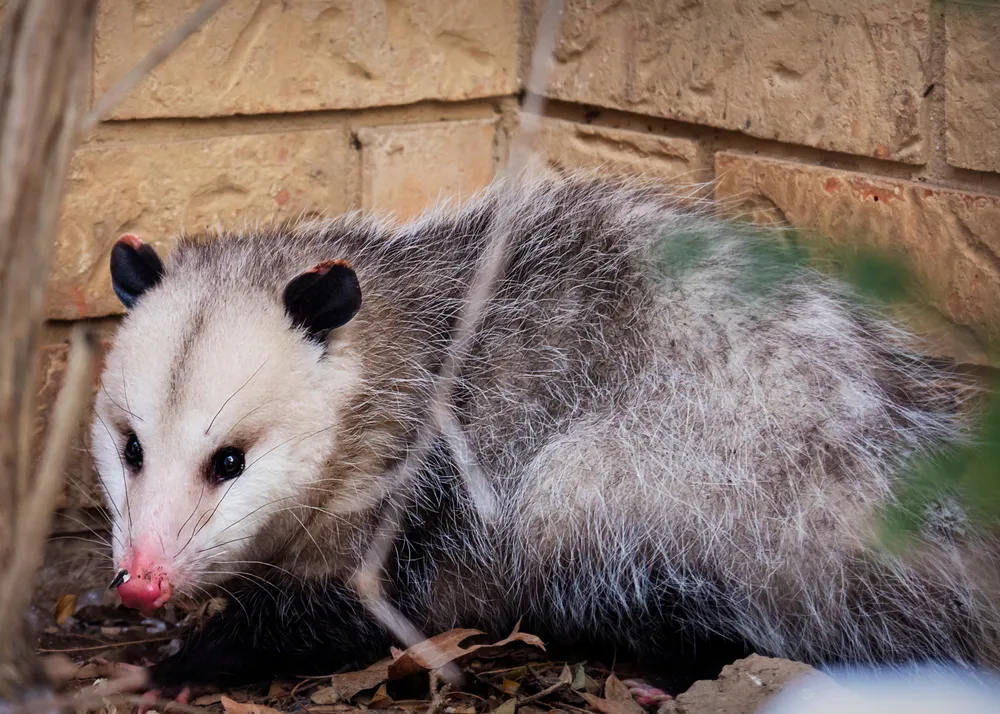
Besides smells, possums can also give away their presence by the sounds they make hiding in your home. Other than the scurrying or scratching sounds they make on the go, the marsupials are also famous for hissing and shrieking when they feel threatened. If you listen closely, you may also notice what sounds like lip-smacking or clicking noises, which are the noises a mother possum uses to communicate with her offspring, according to ProStaff Pest Control.
RELATED: For more up-to-date information, sign up for our daily newsletter.
Possums are likely to hide in dark, enclosed areas like in attics or under porches.
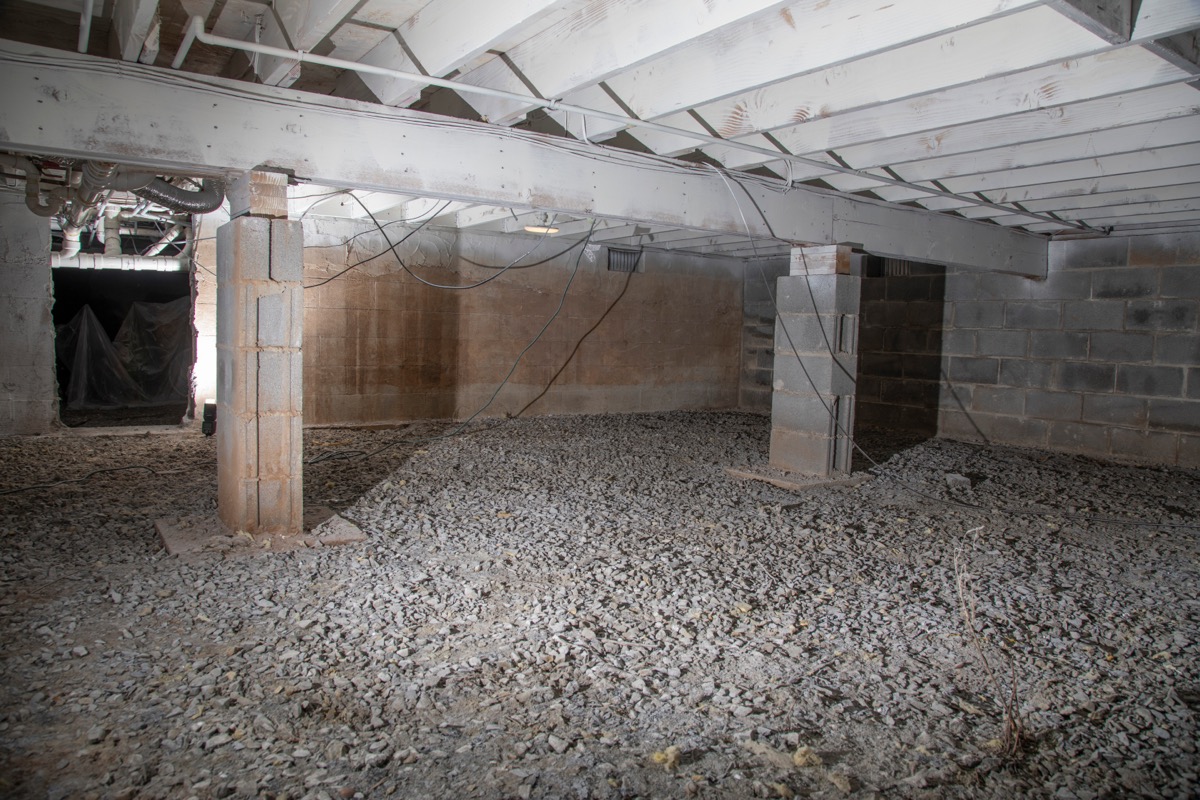
Like any other wildlife looking for a warm place to hide, possums will migrate towards homes searching for food and stick around when they realize they can safely set up camp. But according to Joe Silvenstrini of Pest Control Technicians, Inc., the omnivores are after a lot more than just your garbage can: Everything from birds, snakes, slugs, over-ripe fruits and vegetables left in the garden, frogs, and even dead animals will also attract them.
The stealthy scavengers are also quite adept at entering small spaces and making themselves comfortable. “Possums are able to get into homes through any openings such as pet doors, windows, and any small gaps,” Tony Salerno of Tony’s Pest Control tells Best Life. “We typically find these pests in dark spaces like attics, decks, porches, sheds, and crawl spaces. They typically come inside looking for food and warmth.”
Removing hiding spaces can keep possums from getting comfortable near or inside your home.
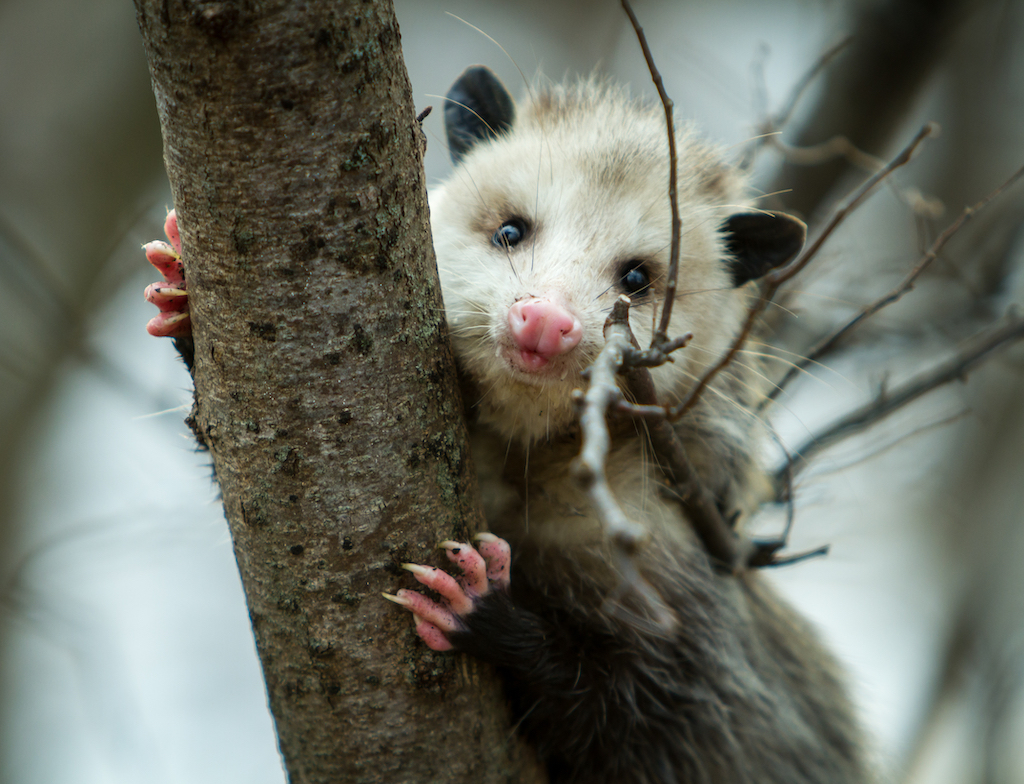
Although you may not want them under your roof, possums can play an important part in the ecosystem in your area and even act as their own form of pest control by eating roaches, mice, rats, and other problematic animals. If you can’t get them out of your home easily or safely, it’s best to call pest services or animal control so they can safely trap, remove, and release the stowaway marsupials. From there, make an effort to patch up any holes, cracks, or gaps that can lead to another infestation of possums under your porch, in your basement, or in your attic.
And besides fortifying your home, you can also keep them at arm’s length by depriving them of the hiding spaces they desperately want. “Possums are fond of dark, small places to protect them and from other animals,” says Caleb Cunningham of Justice Pest Services. “Taking away these spots by turning on extra lights and removing hiding spaces is a good way to keep these pests out of your home.”
RELATED: 5 Cleaning Habits That Attract Snakes.